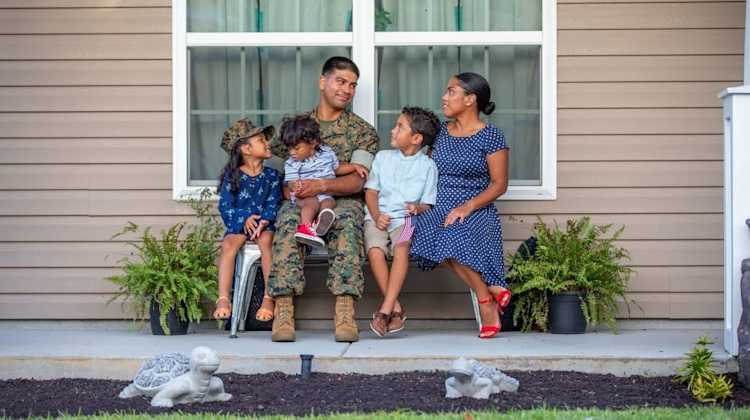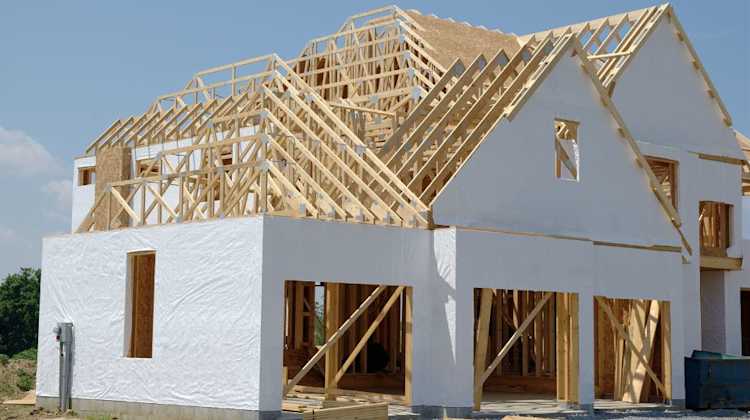Military Homebuying: How Much Can Military Retirees Afford?
by Becca Stewart - November 1st, 2022

Whether military retirement is on the horizon or you’ve been out of the military for years, finding the right home can feel like a monumental task. Can you afford your dream home with your military retiree pay? What should you know before buying a home? And what are your options?
Read on to learn more about military homebuying after retirement.
Military retiree pay and homeownership
Military retiree pay can be confusing, particularly if you haven’t yet retired from military service. Your retirement pay is based on when you entered the service, which retirement plan you chose, and how long you served.
Read this article for more in-depth information about the military’s retirement options. Understanding your retirement pay will make the home-buying process more manageable.
How much house can you afford?
Your monthly and annual earnings – and available down payment – will determine how much house you can afford.
Most lenders follow the “28% rule.” Your mortgage payment should not be more than 28% of your monthly income. With housing prices still on the rise nationwide, it can be difficult for military retirees to find a home within that range.
Consider all your monthly income, including military retirement pay, disability payments, income received from investments, and income from your second career. As a general rule, your monthly mortgage payment should be 28% or less of this total.
Of course, a larger down payment will reduce your monthly mortgage cost. If you’re using a VA loan, you aren’t required to make a down payment. However, providing a down payment can dramatically expand your home-buying options.
An experienced mortgage lender can advise you as you start the homebuying process.
Your homebuying options after military retirement
Once you’ve determined your home-buying budget, it’s time to start looking at options.
First, decide where you want to live. Choosing a location for your military retirement might be a no-brainer, or you might still be undecided. There are many considerations to take into account, including:
Tax advantages (Find ten states with great tax advantages here)
Military-friendly resources
Access to military medical facilities
Career and education opportunities
Proximity to family and friends
Lifestyle
After you’ve decided on a location, connect with an experienced and reputable real estate agent in that area. This agent can explain all your options and help narrow your search. You will have two options when buying a home, discussed below.
New construction
If you want a new home with minimal maintenance concerns, new construction is your first option. A new-build has advantages and disadvantages, but some military retirees prefer to build a home from the ground up. Living in a home that’s never been lived in before is exciting. And if you’ve purchased land, you can design the home of your dreams – pieced together from all those homes you’ve lived in over the years!
From a budgeting standpoint, new-builds can be tricky. The price you pay for the home isn’t as transparent as it seems. If the house isn’t yet completed, you could end up paying thousands extra for upgrades. And even turnkey new construction homes will be costlier than you might expect. You will likely have additional expenses like:
Landscaping costs
Blinds, curtains, and other window coverings
Decks and patio expansions
Fencing
Paint (most new-builds will include one color throughout)
Plus, labor and supply shortages mean new-builds are taking longer than ever before. If you’re considering a new construction home, think about where you will live – and what you will do – during the time it’s being built. It's important to have a real estate agent you can trust, even when you're purchasing a new build.
Existing homes
If you know where you want to live and are eager to get your military retirement started as soon as possible, buying an existing home may be the best option. Existing homes range in age from a few years to a century old or more.
Working with a great real estate agent (preferably one recommended by other military families, veterans, or retirees) can help you find the home that best meets your needs.
Of course, pre-existing homes aren’t without their challenges, either. Depending on the home’s age, you might expect to replace or repair expensive appliances, HVAC systems, water heaters, and more.
Factor these probable repairs into your home-buying budget. You can also prevent some of these repairs by working with a reputable home inspector before closing.
Finding military-friendly real estate agents and lenders
Before you start your home search, connect with an A-Graded real estate agent and mortgage lender. Your best bet is to find a military-friendly real estate professional who knows the ins and outs of military life.
Work with a lender who is deeply familiar with VA loans and military homebuying. An experienced lender can answer your questions and help you determine exactly how much house you can afford.
Your real estate agent should also understand military life and regularly work with military families and retirees. These agents will be familiar with area resources for military veterans and retirees, know about state tax incentives (if any), and help you find the best home for you and your family.
Click here to find reviews and recommendations of agents and lenders in your area.
You’ve served our country. Now, it’s time to enjoy military retirement. The first step is finding a home that meets your needs – and your budget.









